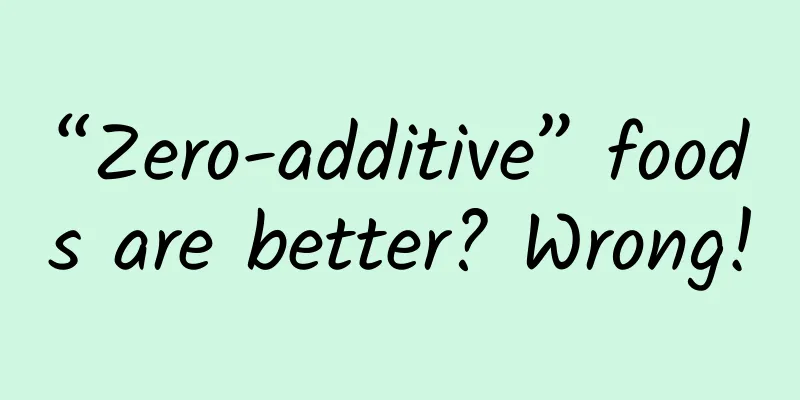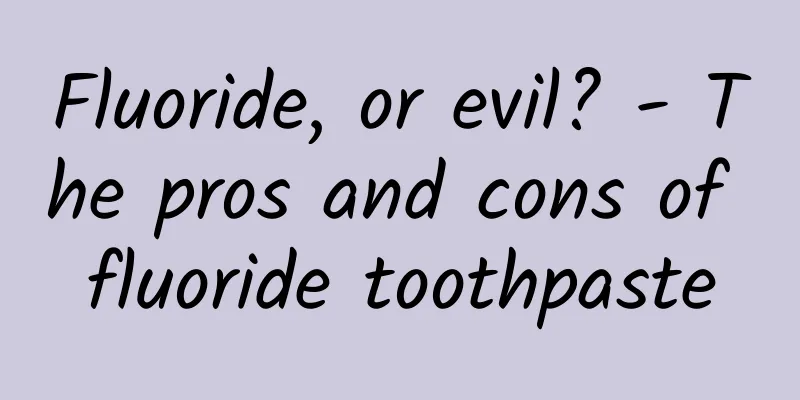“Zero-additive” foods are better? Wrong!

|
Science and Technology Daily reporter Fu Lili Colorful cakes and desserts, rich-flavored drinks... In our lives, these tempting delicacies cannot be achieved without food additives. "It can be said that without food additives, there would be no modern food industry." On November 23, Sun Baoguo, academician of the Chinese Academy of Engineering, chairman of the Chinese Society of Food Science and Technology, and president of Beijing Technology and Business University, said in an interview with Science and Technology Daily. Why add food additives "Food additives refer to artificial or natural substances added to food to improve its quality and color, aroma and taste, as well as for preservation, freshness and processing needs." Sun Baoguo said that common food additives include antioxidants, leavening agents, colorants, preservatives, sweeteners, food flavorings, etc. Why do we add food additives to food? Professor Cao Yanping from the School of Food and Health at Beijing Technology and Business University explained that the main functions of food additives are as follows: First, to maintain or improve the nutritional value of the food itself, adding antioxidants to edible oils can delay or prevent oil oxidation; Second, as a necessary ingredient or component of some special dietary foods, such as foods for diabetics, some energy-free or low-energy high-intensity sweeteners can be added to improve the taste in order to reduce the carbohydrate content of the food; The third is to improve the quality and stability of food and improve the sensory properties of food, such as the emulsifiers and thickeners used in milk-containing beverages; Fourth, it is convenient for the production, processing, packaging, transportation or storage of food. For example, some preservatives have a good anti-mildew effect on pastries. "In short, in the modern food industry, the use of food additives has improved product quality, enriched food variety, and met the diversified food needs of different consumers," said Cao Yanping. Are “zero-additive ” foods better? "Many people think that food additives are bad things and hope for 'zero additives', but they don't know that some food additives are better with additions, and some even want to add more," said Zhong Kai, director of the China Food and Health Information Exchange Center. Specifically, Zhong Kai introduced that this type of food additive is first of all a nutritional enhancer, which includes a variety of vitamins and minerals needed by the human body, as well as other nutrients such as lactoferrin. For some special groups of people, nutritional enhancers are necessary. In addition, iron deficiency is common among pregnant women and growing adolescents, so they can eat some iron-fortified soy sauce. There are also common calcium-fortified foods that can help supplement calcium and are beneficial to tooth and bone health. "Of course, the more nutritional enhancers, the better it is not. Therefore, the national standard has set upper and lower limits for the amount of fortification, which ensures effectiveness while avoiding excessiveness," Zhong Kai emphasized. Secondly, it is a thickener to supplement dietary fiber. Zhong Kai said that as modern people's diets become more refined, whole grains are becoming more popular, and one of the important reasons is the need to supplement dietary fiber. There is a large category of food additives called thickeners, which are generally gums, polysaccharides, sugar alcohols and modified starch substances, many of which are dietary fibers extracted from natural foods. "For example, nowadays we rarely eat rancid-tasting oil. This is mainly because the antioxidant tertiary butylhydroquinone is added to edible oil, which is often said to scavenger free radicals," said Zhong Kai. Zhong Kai said that people don't need to worry too much about food additives. In fact, common kitchen spices such as star anise, cloves, and cinnamon are also food additives. "Whether to use or not, what kind of food additives to use, or how many kinds of food additives to use, as long as they meet the requirements of relevant standards, they will not harm health and there is no difference in safety," Zhong Kai emphasized. Source: Science and Technology Daily |
<<: Weibo: User and business monetization remain strong in 4Q17
>>: CyberZ&Digital InFact: Japan's smartphone advertising market reached 371.7 billion yen in 2015
Recommend
What should I pay attention to after the due date?
We all know that the due date is a common estimat...
Are early pregnancy symptoms intermittent?
Early pregnancy reaction refers to symptoms such ...
Causes and precautions of sweating after abortion
Abortion is really harmful to the body. In daily ...
Is brown discharge normal for girls?
We all know that women's bodies will undergo ...
How to take care of women's private parts
We all know that women are like flowers, which re...
There are so many reasons for vertigo, nothing more than these factors
Dizziness is a common symptom that can occur in a...
Why does a woman urinate frequently, painfully, and blood in the urine?
The weather is hot and humid, and bacteria grow a...
Short hair girl
Women generally have long hair, but this is not a...
What is the reason for lower abdominal pain on the second day after normal delivery?
"Generally, the recovery after a natural bir...
When do women's breasts develop?
Breasts are the second characteristic of women. B...
In recent years, the number of people suffering from myocardial infarction has increased. Which groups are more likely to suffer from it? Discuss the causes, symptoms and prevention of myocardial infarction
If you pay attention to some examples around you,...
How to nourish kidneys first for women's beauty
In fact, don’t think that only men can nourish th...
Which type of swimming crab is better? Is it better to steam or boil the swimming crab?
If you have been craving for it recently, buy a f...
How to exercise after cesarean section
Many women have problems during childbirth, so pa...
Symptoms of vitamin D deficiency in women
Vitamin D deficiency is also known as vitamin D d...









